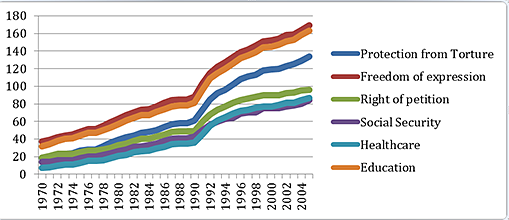Trial lecture - time and place
Adjudication Committee
- Professor Mads Andenæs, University of Oslo (leader)
- Professor Philip G. Alston, New York University (1. opponent)
- Professor Eva Brems, Ghent University (2. opponent)
Chair of defence
Supervisors
Summary
Should courts adjudicate social rights such as the rights to health, housing and education? Should they possess the power to overrule parliaments when national laws conflict with social rights that are enshrined in constitutions and international human rights treaties?
These questions are controversial in many countries. In Norway, the recent formal proposal to include social rights in the constitution was met with spirited debate in the national parliament and only partial acceptance. Moreover, the Norwegian parliament and executive has hesitated to recommend ratification of new complaint mechanisms for international human rights treaties, partly because of the presence of these rights.
Yet, at the same time, social rights have been incorporated in numerous constitutions across the world, which has provided the basis for a growing jurisprudence (See Figure 1). Therefore, it is no longer possible to constrain the discussion of judicial review to civil and political rights. Social rights are an increasing part of legal practice and judicial review – a phenomenon that is both European and global.
This thesis asks an old question in this new context: Is social rights adjudication legitimate and effective, and under what conditions?
The study primarily examines the arguments for and against the judicial review of social rights at the national and international level. In doing so, it takes up difficult questions such as democratic legitimacy and expertise of adjudicators and the impact of judgments and decisions in practice – especially when these rights appear to be expensive to implement.
Taking a departure point in jurisprudence from over 30 countries, the study takes an interdisciplinary approach in examining the legitimacy and effectiveness of social rights adjudication. It draws heavily on literature from philosophy and the social sciences as much as law. Moreover, qualitative and quantitative methods from political science and economics complement standard legal doctrinal analysis.
Overall, the thesis makes a conditional case for social rights adjudication. It reveals that many aspects of social rights can be made subject to judicial review but recommends the use of differentiated and reflexive techniques by judges when they find their expertise or democratic legitimacy significantly challenged. The thesis also finds that courts have contributed to the reduction of poverty and inequality but that the design of adjudicatory institutions and various external factors conditions the degree of impact. Finally, it is argued that the theoretical and empirical issues traversed in the study carry consequences for our understanding of judicial review in general.
Figure 1. The growing recognition of civil and social rights in constitutions: 1970-2005
 Copyright: Malcolm Langford
Copyright: Malcolm Langford
